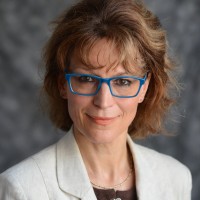This past week, three Columbia Global Freedom of Expression experts have fallen victims to laws encroaching on their freedom of expression and by extension on the free flow of information around the world. On March 17, 2016, Egyptian authorities re-opened a 2011 investigation into allegations that Hossam Bahgat operated an NGO and received funds from foreign governments without a license. The charges carry a possible life-imprisonment. On March 20, 2016, the Bahraini authorities charged Sheikh Maytham Al-Salman with defamation of religious symbols in relation to a sermon he gave in November 2015. On March 16, 2016, the Mass Media Defense Center led by Galina Arapova lost its appeal to be removed from Russia’s roster of foreign agents. These actions violate the human rights of these eminent experts; they have a chilling effect on freedom of expression and undermine the free flow of information, essential as well to the realization of academic freedom.
“We are not drug dealers or weapon smugglers.”
For over a decade, Hossam Bahgat led the Egyptian Initiative for Personal Rights, where he still remains a chairman. Since 2013, he has worked with Mada Masr, a Cairo-based investigative journalism website. He is also an expert for Columbia Global Freedom of Expression. His commitment to human rights in Egypt has been internationally recognized and in 2010, Human Rights Watch awarded Hossam the Allison Des Forges Award for Extraordinary Activism. Despite his public interest work, he has become a target of government prosecution. In addition to the present charges, he has also been detained for three days by the military in November 2015 in relation to an article he wrote about a secret military trial of 26 military officers charged with conspiring to overthrow the government. Furthermore, in February, Hossam learned that he has been banned from leaving Egypt.
The current charges laid against Hossam Bahgat are related to Case No. 173/2011, also known as the foreign funding case against NGOs. In 2011, the Minister of Justice set up a fact-finding committee to look into foreign funded NGOs and to determine their compliance with the Associations Law 84/2002. The restrictive law requires NGOs to register or face investigation and possible prosecution. In 2013, on the basis of the report produced by the fact-finding committee, the Cairo criminal court sentenced 43 foreign and Egyptian employees of foreign NGOs to prison terms between 1 and 5 years, and ordered the closure of Freedom House, the National Democratic Institute, the International Center for Journalists, and other foreign NGOs. The fact-finding report also listed 37 additional organizations in risk of prosecution. Starting in February 2016 the Egyptian authorities began an inquiry into 25 NGOs from the list, including the Egyptian Initiative for Personal Rights.
“We are not drug dealers or weapon smugglers. We work on human rights. If the state thinks that’s a criminal offence, they should formally criminalize it — but while they’re at it, they should also withdraw from all the international agreements they are signatory to,” said Mohamed Zarea, the head of the Cairo Institute for Human Rights Studies and a former colleague of Hossam Bahgat.
Hossam is charged under:
- Article 78 of the Egyptian penal code that penalizes with life imprisonment receipt of money from foreign governments with the aim of pursuing acts harmful to the national interest;
- Article 98(c)(1) that penalizes with imprisonment for up to 6 months and fines the creation and management of an institution of any kind of international character without a license; and
- Article 98(d) that penalizes with imprisonment of up to 5 years and a fine anyone who receives foreign funds for committing crimes under Articles 98(1), 98(1)(bis), 98(b), 98(c), or 174 of the Code. The four articles forbid advocacy for change of the basic Constitutional principles, inciting hatred against the State, and propagating superiority of one class over another.
In addition to Hossam Bahgat, Gamal Eid, the executive director of the Arabic Network for Human Rights Information and two other persons have been charged under the above articles and had over $1.5 million in assets frozen. Additionally, at least ten human rights defenders, including Hossam Bahgat and Gamal Eid, tied to the NGOs that allegedly violated the Associations Law 84/2002 have been banned from travel outside of Egypt.
In 1982 Egypt has become a party to the ICCPR that guarantees freedom of expression under Article 19 and freedom of association under Article 22. Since 1984 Egypt has also been a party to the African Charter on Human and Peoples’ Rights that guarantees freedom of expression and freedom of association (under Article 9 and Article 10 respectively). Non-governmental organizations that promote human rights have been considered particularly vulnerable and in need of enhance protection. Therefore, international instruments supporting them have been implemented. Article 13 of the Declaration on the Right and Responsibility of Individuals, Groups and Organs of Society to Promote and Protect Universally Recognized Human Rights and Fundamental Freedoms, commonly known as the Declaration on Human Rights Defenders, states that everyone “has the right, individually and in association with others, to solicit, receive and utilize resources for the express purpose of promoting and protecting human rights and fundamental freedoms through peaceful means.” Although the declaration is not a legally binding instrument, it contains principles enshrined in other legally binding human rights treaties.
International norms also provide guidelines on access to financial resources. Specifically, Article 6(f) of the UN Declaration on the Elimination of All Forms of Intolerance and of Discrimination Based on Religion or Belief states that the freedom of thought, conscience, religion or belief includes the freedom to solicit and receive voluntary financial contributions. The Human Rights Council provides additional direction on the topic and in its resolution 22/6 adopted on March 21, 2013, declared that States should “not discriminatorily impose restrictions on potential sources of funding.”
The charges brought against Hossam Bahgat, Gamal Eid and other human rights defenders violate Egypt’s commitment to its national and international obligations. They also clearly undermine international norms in respect to NGOs seeking funding and undermine the autonomy of organizations to solicit financial aid necessary to provide an adequate defense for human rights in Egypt. Furthermore the threat of life imprisonment and a travel ban imposed on Hossam Bahgat and Gamal Eid produce a severe chilling effect on voices that advocate for human rights in Egypt, while preventing the free flow of information.
“Renewing commitment to a world where discrimination and bigotry does not exist.”
On March 20, 2016, Sheikh Maytham Al-Salman was charged with defamation of religious symbols under Article 309 of Bahrain’s Penal Code in relation to a speech he gave in November 2015. The Article reads that “a punishment for a period not exceeding one year or a fine not exceeding BD 100 shall be inflicted upon any person who commits an offence by any method of expression against one of the recognized religious sects or ridicules the rituals thereof.”
Sheikh Maytham has advocated for peace and religious tolerance for over a decade. For his work he received the Advocate for Peace Award from the Interfaith Communities for Justice and Peace in 2015. He has participated in and moderated United National meetings, most recently an event in Jordan organized by the UN Office on Genocide Prevention and the Responsibility to Protect and Columbia University on the role of religious leaders in responding to incitement to violence. He is also a Columbia Global Freedom of Expression expert.
This is the third time in the past year that Sheikh Maytham Al-Salman has been charged for speech related offenses. In August 2015, he was charged with inciting hatred against the regime and publication of false news due to several statements and tweets that denounced violence and extremism. In January 2016, he was charged with incitement of hatred towards the system of government and expressing views on an ongoing trial with the intent to change public opinion. Since then, he has also faced a de-facto travel ban as his demands to renew his passport have been left unanswered. In February 2016, Columbia Global Freedom of Expression released a legal statement on the illegitimacy of charges brought again Maytham Al-Salman.
Just as Egypt, Bahrain is a signatory to the ICCPR. General Comment 34 by the Human Rights Committee has clarified the scope of freedom of expression and its limitations and stressed the protection of religious discourse. General Comment 34 also explicitly declares that blasphemy laws are incompatible with the ICCPR. Article 23 of Bahrain’s Constitution reflects the legal framework of the ICCPR and guarantees freedom of expression “under the rules and conditions laid down by law, provided that the fundamental beliefs of Islamic doctrine are not infringed, the unity of the people is not prejudiced, and discord and sectarianism is not aroused.”
Sheikh Maytham Al-Salman has promoted inter-religious understanding and peace for over a decade and for him to utter statements that could be construed as defamatory to religious symbols is highly improbable. However, even if he did make such statements, international bodies have repeatedly called for the repeal of blasphemy laws. The charges brought against Sheikh Maytham Al-Salman, including the most recent ones on the basis of improbable circumstances, as well as the travel ban, undermine their legitimacy and instead suggest harassment on the basis of political opinion.
One for all, and all for one – Russia’s foreign agent law
In February 2015, the Mass Media Defense Center was added to the roster of “foreign agents” in Russia. Galina Arapova is the Center’s director as well as a Columbia Global Freedom of Expression expert. She has been actively engaged in freedom of expression work since 1995 and is also a member of the International Media Lawyers Association. On March 16, 2016, the Center lost its appeal to be removed from the roster. The Center is now appealing the ruling and has confirmed its intention to fight it all the way to the European Court of Human Rights.
An anonymous complaint triggered a review of the Center for compliance with the 2012 legislation, commonly known as the foreign agent law, that requires NGOs receiving foreign funding and engaging in political activities to register as a foreign agent or face fines, bans, or imprisonment of its staff. In January 2016, Russia’s Ministry of Justice clarified the meaning of political activity to include almost any statements about Russia’s government, laws, or policies. The Mass Media Defence Center was included in the roster solely on the basis of Galina Arapova’s statements, rather than on the basis of the Center’s actual work. The Ministry of Justice produced thirty pages of Galina Arapova’s statements that it found to amount to political activism. Examples of such statements include: “In the past two years, there were more laws adopted limiting journalists’ rights, freedom of expression and information, than in the previous 15 years” and “State control of the media will prevent different viewpoints from being presented.” Additionally, statements that she gave in her capacity as a lawyer to public bodies were also labeled as political activities.
The foreign agent law has received wide criticism from NGOs, the United Nations High Commission for Human Rights, as well as the Venice Commission, the latter having reviewed the law thoroughly and declared that it stigmatized human rights NGOs and hampered their activities. Particularly, the Venice Commission declared that the law brought back Communist rhetoric of foreign agents and “stigmatized NGOs, tarnishing their reputations.” Moreover, in this particular case, the addition of the Center to the roster was solely on the basis of Galina Arapova’s statements, which could be construed as punishment for her expression and opinion, and thus in violation of freedom of expression. Despite the label and the expected court outcome, Galina Arapova and the Mass Media Defense Center continue to promote freedom of expression in Russia and will continue the legal battle.


